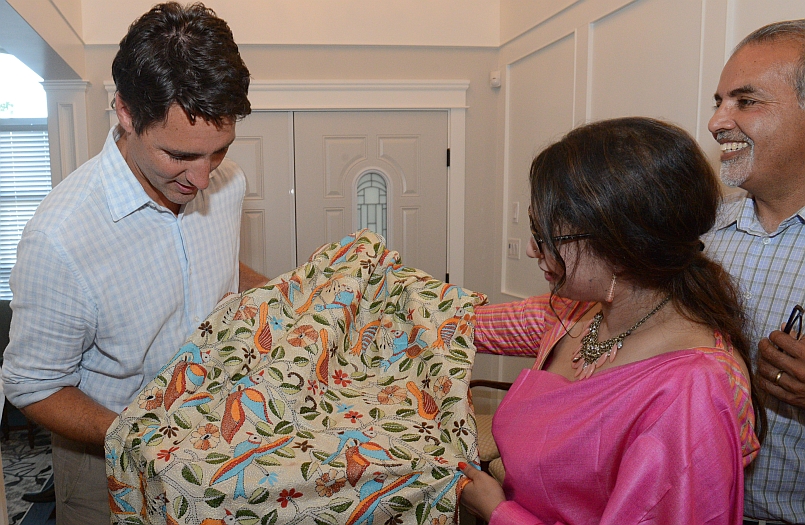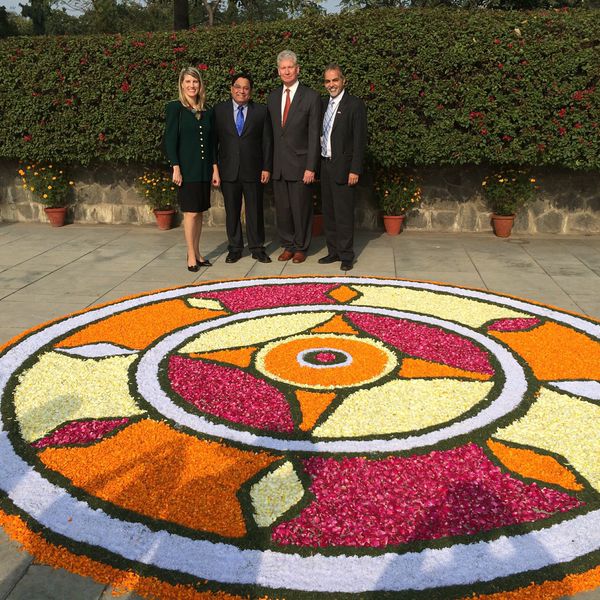
We Should Support Immigrant Women Entrepreneurs
Op-ed originally published in The Vancouver Sun on September 11, 2014
Kas Guha came to Canada 10 years ago from an area in India known for silk manufacturing. Over the years, she has worked in many retail and non-profit jobs but she always dreamed of connecting Canadians with the beautiful weaving by artisans in her home region. She turned her dream into a reality in 2013 and launched Ethnik Yarn, bringing hand-woven textiles, apparel, and accessories made by artisans in several Indian villages to Canada.
Kas’s story has me wondering how many other immigrant women have similar dreams that have not yet been realized. There are many efforts under way in Canada to ensure support for women in business, as well as programs to support immigrant entrepreneurs, but is enough being done for female immigrant entrepreneurs specifically?
The importance of women in business is well documented. It has been found that organizations with more women in top management positions achieve 35-per-cent higher return on equity than their peers. Women also tend to be better team-builders, better at assessing the resources needed to accomplish certain goals, better at combining intuitive and logical thinking, and better at managing money. Women also tend to focus more on the greater good, engaging with communities and participating more actively in social responsibility projects. Ethnik Yarn, for example, sponsors campaigns to raise awareness about cervical cancer in Bengal, India.
Yet the barriers to women in business persist. Women have a more difficult time securing financing for their businesses, which may be due to the bias of investors or other factors such as women’s tendency to take fewer risks than men. Many women also need to balance work with a greater share of responsibilities at home than their male counterparts, and as a result many women tend to get involved in business at a later stage in life, which can also be seen as a strike against them. Today, women still only represent 35 per cent of all self-employed people in Canada.
Comparatively, Canada is doing well in terms of the number of over-all women in business; Statistics Canada reports almost half of all small- and medium-sized businesses are entirely or partly owned by women, and contribute to the creation of almost 10,000 jobs every year. There are a number of provincial programs to support women in business such as The Women’s Enterprise Initiative, which has offices in four provinces.
In B.C., the provincial government has created the Women’s Economic Council to advise women in business and expand opportunities for women in key business sectors in the province. However, there is no national strategy specifically aimed at supporting women in business.
Both federally and provincially, we recognize the importance of engaging with diaspora populations to share knowledge and grow the economy. The government of Canada offers support services for all Canadians hoping to start a new business, and last year announced a Start-Up Visa program to attract immigrant entrepreneurs to the country. Similarly, the B.C. Provincial Nominee Program provides information and support for newcomers hoping to start or bring their business to the province.
But we have not explored sufficiently the ways in which we might leverage the knowledge and networks of female immigrants interested in starting businesses in Canada. Many immigrant women have unique skills, including market intelligence, that they have learned from their home countries, and innovative ideas that could contribute to their home communities as well as to Canada. But immigrant women also face unique challenges when coming to our country: Sexism and racism intersect in ways that can hold them back from realizing their full potential.
By overlooking the role of female immigrant entrepreneurs in Canada, and the ways in which we might support them, we are potentially missing out on important opportunities to bolster international trade and create jobs both here and abroad. I applaud the various efforts, particularly at the provincial level, to support women in business and to encourage immigrant entrepreneurship, but I would also welcome a deeper look at policy and program initiatives that focus on female immigrant entrepreneurs. How can we support the Kas Guhas of our country to ensure we are not missing out on a potentially more creative and diverse society and economy?




